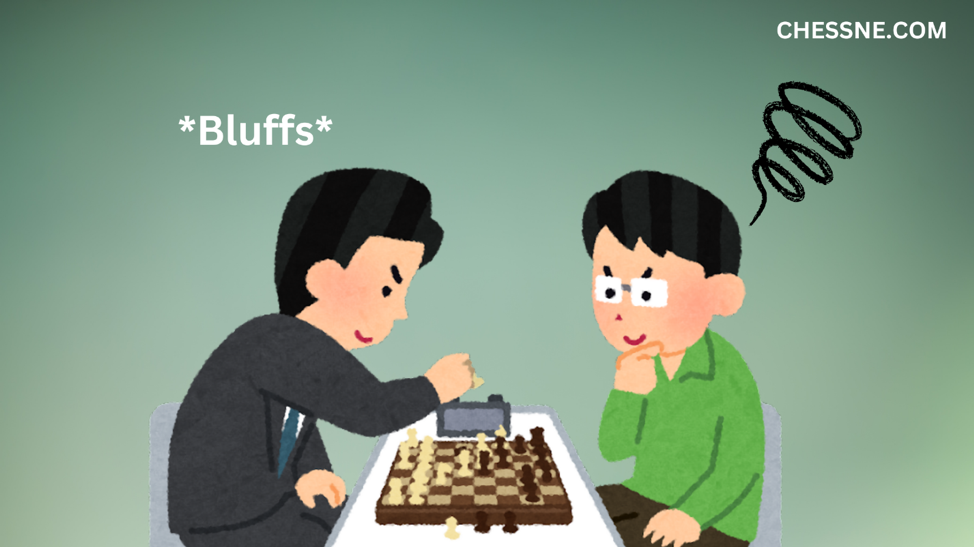
Most grandmasters define chess as a psychological skill rather than just a technical game. They agree that understanding an opponent’s mindset can significantly boost your game. Let’s talk about some essential strategies for reading your opponent mind and gaining a competitive tempo!
Observe Your Opponent’s Moves
When facing an opponent, the first step is to watch their moves very carefully. Every piece on the board has a purpose, and experienced players know that understanding these moves is a must. For instance, if an opponent pushes a random pawn after a balanced opening or in the middle-game that does not threat any of your pieces, it could indicate a plan to build up a sneaky trap. Therefore, if your opponent makes an odd move, you should never ignore it but also go defensive rather than focusing on your own strategies.
Bluffing
Bluffing is another tactic frequently used by advanced players. By making a move that seems aggressive or dangerous, the idea is to confuse the opponent, leading them to overthink and potentially make mistakes. As Garry Kasparov says, “Let your opponent make a mistake.”
Creating scenarios where opponents doubt their own decisions can turn the tide of a game.
Body Language
Body language plays a significant role in chess games specially in the big tournaments. As a beginner you will fall for it unless you know how to handle it. Many grandmasters emphasize the importance of observing an opponent’s behavior during matches. For instance, if a player is twitching, tapping fingers, or avoiding eye contact, it may indicate nervousness or pressure. If your opponent is going through that, with the right opportunity, you can bluff and your opponent might easily blunder. Magnus Carlsen, known for his calm presence, often uses this to his advantage, forcing opponents to focus more on their own nerves than on the game.
An Eye for an Eye
Smart chess players try to put their pieces in strong spots where they can limit what their opponent can do. If your opponent has most of their pieces on one side of the board, you can take control of the other side. This way, they have to worry about your moves too, not just their own. A good example is in rook and pawn endgames—here, you want to get rid of your opponent’s pawns. So, if they go after one of your unprotected pawns, you can hit back by going after their unprotected ones!Quick Tip: Seek out weak squares in your opponent’s setup—areas where pieces can’t easily defend each other become prime targets for attack.
The Power of Patience
Lastly, patience is a crucial aspect of chess that many seasoned players emphasize. Often, the best move is simply to wait. By staying calm and composed, players can encourage their opponents to make hasty decisions under pressure.
As experts often say, “Chess is a game of patience.” Sometimes, doing nothing leads to the most significant advantages.
Playing mind games with your opponent can really help improve your chess skills. By paying attention to how they move, their body language, and their strategies, you can get an edge in the game. This works well in rapid or classical formats, but it might not be a good idea in bullet games since you don’t have much time to watch your opponent.
If you’re looking to get better in every aspect of chess, sign up today at New England Chess School for our online classes and fun blogs, chess news, and much more. We offer fun lessons for everyone, no matter your age.